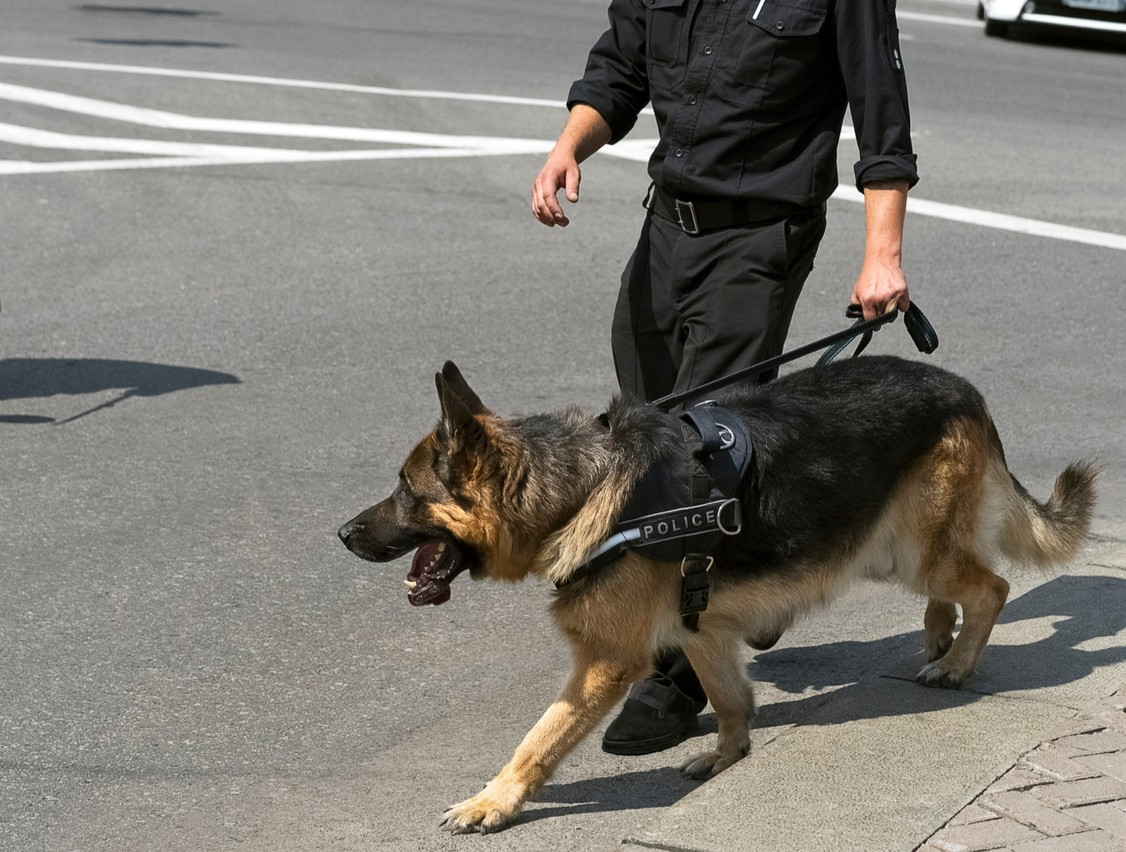On Thursday, the City of Luxembourg published a press release announcing the use of private agents in the Gare and Ville Haute neighbourhoods, “to fight against the feeling of urban insecurity and strengthen public tranquility”. They should not, according to the local authorities, encroach on the work of the police but serve as reinforcement.
Immediate criticism
It didn’t take long for criticism to surface. The very next day, the department of homeland security said that it was “opposed to the privatisation of the law and order service, which remains an exclusive mission of the specially trained police officer”.
It added: "It is essential to maintain a strict division of labour, since private security companies are not authorised to carry out police missions--a position that the ministry has repeatedly reiterated. The most important political and legal principle in the field of private security in Luxembourg is and has always been to not make private security agents auxiliary police officers. They have not been trained in the fight against drug-related crime, unlike the officers in police stations of the neighborhoods in question."
A very political question
“We do not understand the point of this criticism,” said mayor Lydie Polfer (DP). “The presence of security officers is only preventive.” She remembers her concern regarding the “known but not improving security situation” in these two neighbourhoods. Drug trafficking “and all that entails” seems to be at the root of the problem.
On RTL, Henri Kox (Déi Gréng), minister for internal security, said the measure seemed “illegal”. A statement quickly clarified to the Wort when the minister specified that the public road remained accessible to all, and that the municipal administration could call upon a security company.
But the situation had already fanned the flames of anger, and the commune did not hide its dissatisfaction regarding these criticisms. The opposition saw this as a topic for debate. Déi Lénk, having heard the word “illegal”, asked the minister to put pressure on the city in order to withdraw the measure and, failing that, to refer it to the administrative judge to prevent the execution and obtain annulment. "We also call on the interior minister, Taina Bofferding (LSAP), to intervene as minister resposnsible for the college of mayors and aldermen of the city of Luxembourg.”
Not the same missions as the police
What the municipal college wants to put in place as of 1 December are two teams composed of two agents with a guard dog in the Gare district and one team composed of two agents and a guard dog in the Ville Haute. Agents from the company GDL Security, selected by tender according to the mayor. She did not give details on their schedule in the Gare neighbourhood, which will be variable and will not correspond to "office hours". However, they should nevertheless monitor the Ville Haute between 2pm and 8pm.
Although the mayor welcomes the increase in the number of police officers (30), “they cannot be everywhere”. Private agents are an “additional presence”. Their tasks, governed by the amended law of 12 November 2002 on private security and surveillance activities, are not the same as those of the police, governed by the law of 18 July 2018 on the police.
They do not have the right to check an individual’s identity or to carry a weapon. Their role will be to call the police if necessary, or to act "as any citizen in the assistance to anyone in danger,” she explained.
Polfer also pointed out that other elected representatives call on private companies in the public space, such as Differdange. Similarly, in Luxembourg, private agents are used to monitor the parks or the Schueberfouer.
When asked about it, the departments of homeland security and public service were unable to provide statistics on this type of public/private collaboration in the country. In any event, “the department of homeland security does not support this policy even though, because of the autonomy of the municipalities, it cannot oppose it as long as the framework of the law on guarding activities is respected”.
Legislative issue accoridng to the SNGPL
The police union (Syndicat national de la police grand-ducale Luxembourg, or SNPGL) wants to distinguish between the surveillance of specific places, such as a park, events or buildings, like the station, entrusted to Dussmann, and public space, assigned to the police.
It also opposes the measures announced by the City: “What is the legal basis for assigning the maintenance of public order to private companies?” asked union president Pascal Ricquier. He does not see the point: “The problem is not only the number of staff,” he explains, without being able to say precisely how many officers are deployed at the Gare in normal times.
“Even if we had a hundred more people, it would be useless if there is no legal basis. The police can do nothing at all. [They] cannot drive people away, so [they] tell them to leave, but the problem is moved from one street to another.” A law giving the local police the possibility of “expulsion” would solve the problem, he said.
The “preventive presence mission”, which seems more symbolic than effective according to many actors, should last from 1 December 2020 to 31 January 2021. “After that, we will see how this experience was perceived”, predicts the mayor, who says she wants to meet again with the ministry of homeland security, the ministry of justice as well as the residents of the Gare district.
As for long-term solutions, the recruitment of 600 police officers should allow a reinforced system at the station. "It will take [three, editor’s note] years, we cannot do nothing".
This article was originally published in French on Paperjam.lu and translated and edited for Delano.
